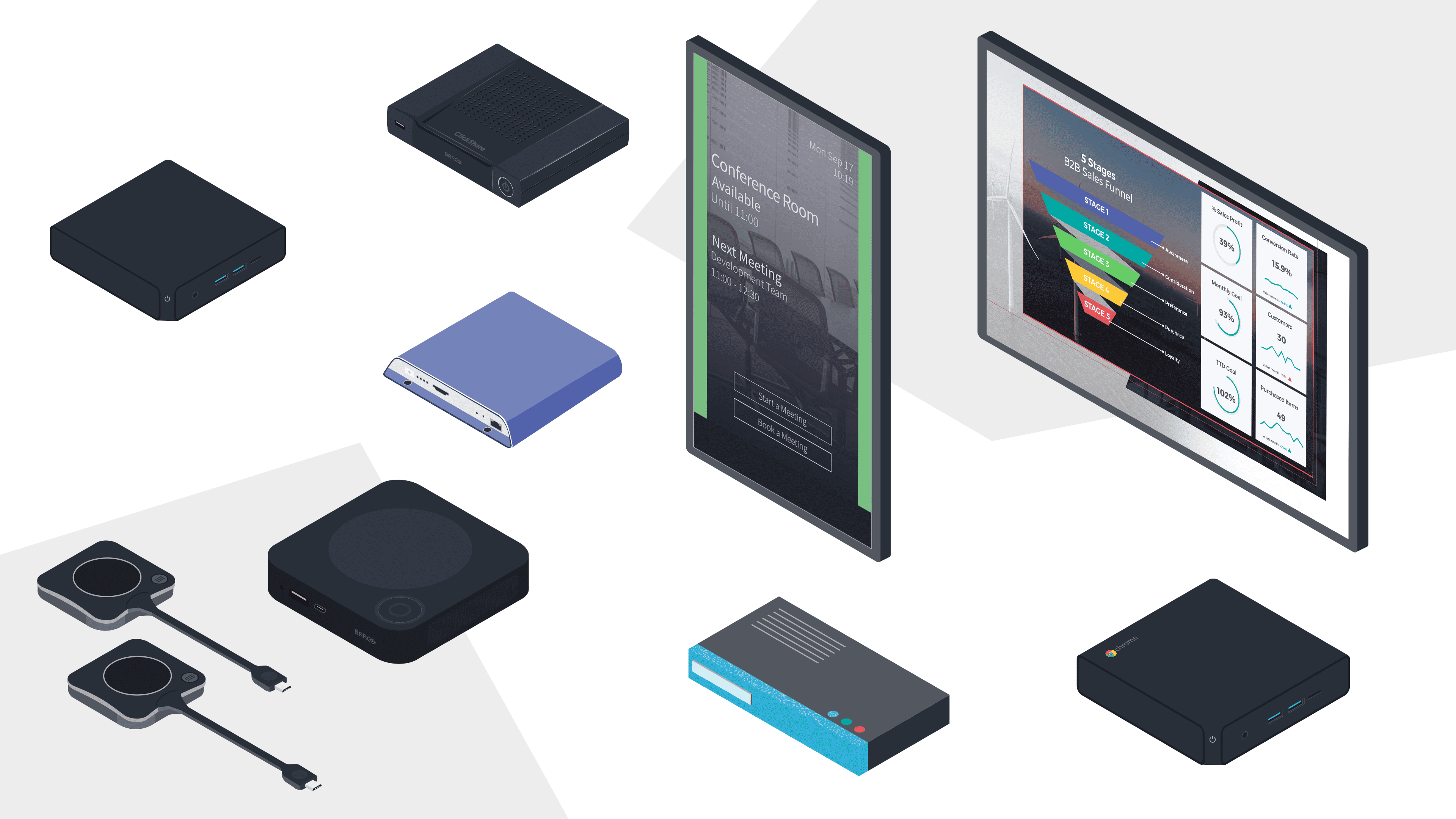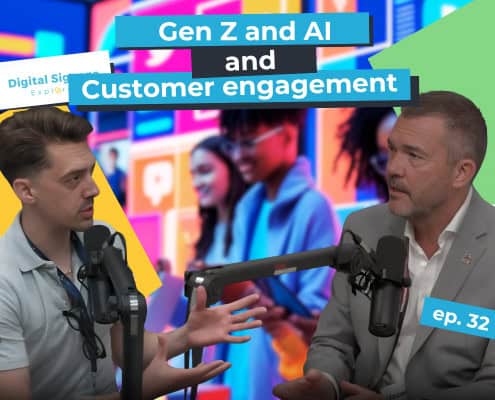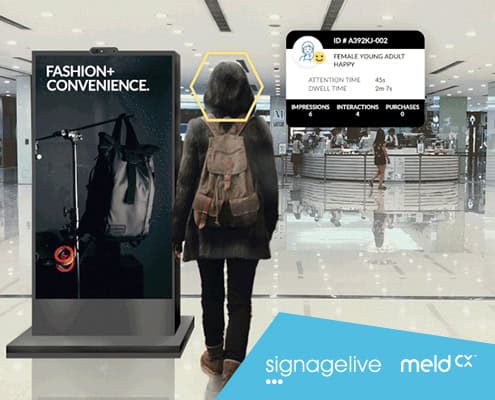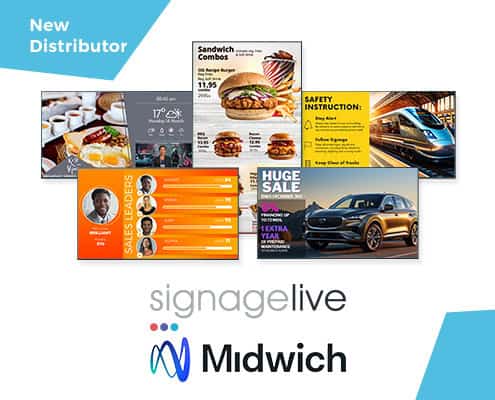
Single sourcing is, according to Indeed, “when a company chooses one supplier to provide all of its products, materials, parts and components”. For Digital Signage, this usually means purchasing your software solution from the same hardware manufacturer that will be supplying your screens. Multi-sourcing, on the other hand, is an approach, in which you make use of several different suppliers. For Digital Signage, this usually entails opting to work with both a hardware manufacturer and a specialist software provider. So which approach works best for Digital Signage? There are pros and cons to both strategies, and which you choose will ultimately come down to your Digital Signage objectives.
Advantages of a single-supplier strategy
Cost-savings in the short-term
Opting for a single Digital Signage supplier to provide both your hardware and software is quick, convenient and, often, in the short-term, more cost-efficient. It gives you considerably more bargaining power, and you can often achieve cost-saving economies of scale.
Seamless software integration
For any business new to Digital Signage, it’s also a strategy that enables you to work exclusively with a manufacturer that you know and trust, and to be sure you have a seamlessly integrated solution. Without any prior knowledge or need for research, you can simply purchase and adopt the content management system (CMS), as it will have been designed specifically for use with the System-on-Chip (SoC) screens – screens with built-in media players, that you’ve purchased. This means that you can be certain of an enhanced software performance, and compatibility with, for instance, all the hardware settings, features and ecosystems of your selected Digital Signage SoC screens.
Smooth customer service
In terms of on-going customer service, the experience is likely to be smooth and convenient, as you can contact the same team for any hardware and software issues or advice.
Disadvantages of a single-supplier strategy
Ineffective risk management
There are, however, a number of trade-offs that you’ll need to make, should you choose a single-sourcing approach. Once you’re locked into this strategy, you won’t be able to mitigate as many risks to your business. Entirely reliant on a single manufacturer, you’ll be vulnerable to hardware supply chain interruptions, and product discontinuations. It means that, over time, if you can’t continually find replacement and/or additional Digital Signage screens from the same manufacturer, you’ll risk having to replace the software system that your whole business is accustomed to using.
Costly in the long run
But that’s not the only drawback to consider. Long-term, single sourcing may not prove as economical as in the beginning. While you do generally have more bargaining power when you purchase everything from a single supplier, over time, you may miss out, as your manufacturer won’t have any incentive to undercut and compete against other suppliers’ pricing.
Lack of agility
What’s more, you risk losing some of the business agility that you need to stay competitive. As your business grows, it will be harder to scale up and respond to changing market conditions, as every time you need to replace your hardware, you’ll likely have to waste time investing in a whole new CMS platform.
Basic, generic functionality
Working solely with a hardware manufacturer will also make it tougher to find an innovative or customised software solution to suit your specific business needs. Hardware manufacturers are not software specialists, and generally lack the expertise, and experience of dedicated CMS providers. They can provide great generic off-the-shelf software packages, but not the flexibility to build out and shape your own solution.
Advantages of multi-sourcing strategy
So, what exactly are the benefits of adopting a multi-supplier strategy and working with a separate CMS specialist?
Market-leading technologies
For a start, you can easily source market-leading cloud-based Digital Signage solutions. Compatible with a wide range of hardware AND built with a whole host of leading-edge content tools, they are future-ready, offering the scope and choice you need to branch out and try new multimedia technologies. Some are already leveraging the power of the Internet of Things (IoT), enabling you to control connected devices in the environment to help drive home your on-screen messaging. The most advanced content management systems come with upwards of 500+ applications. These include everything from HTML tools that enable you to design without coding to vision AI solutions, which use anonymous data to measure your campaign impact.
Unique CMS experiences
With a dedicated CMS provider, you also have more support to create unique customer and user experiences. You could create interactive product showcases that, for instance, automatically trigger content to nearby screens. Alternatively, with the support of your CMS provider, you could develop your own headless solution, so content can be delivered across every channel from Digital Signage, mobile apps and websites to virtual reality headsets.
Enterprise-ready support
The other advantage of opting to work with a CMS specialist is that they can usually offer more sophisticated, enterprise-ready features. As you scale up, you may need extra support to help roll out customised user roles and efficient content management processes.
Advanced cybersecurity
Given their experience, expertise and accreditations, CMS specialists can also usually offer advanced data protection. Many of the most secure CMS platforms are designed by ISO-27001-certified CMS suppliers that have verified secure data processes, and can offer additional security features, such as Multi-Factor Authentication (MFA) for convenient and safe logins. Single sourcing and multi-sourcing can both be valuable for Digital Signage, but which you choose will really depend on your own business’s requirements. While a single-sourcing approach might suit an organisation with more basic, generic software requirements, multi-sourcing is likely to appeal to those looking for more specialist, customised and future-ready CMS support.
Other articles you might be interested in:
Turn your Signagelive CMS into a hub for external device control with Real Time Events
Discover the power of data analytics with AI-powered Signagelive and MeldCX Viana solution
Managing an enterprise Digital Signage solution: Key factors and considerations




You must be logged in to post a comment.